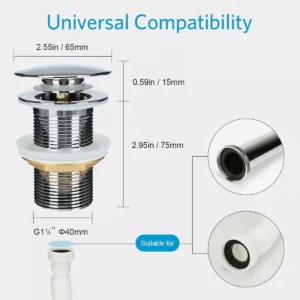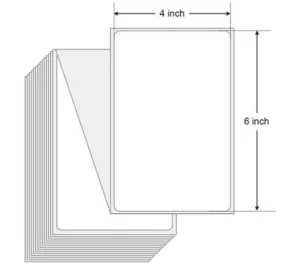Many professions now include protective eyewear as a necessary component of personal protective gear. While anti-fog technology enhances visibility in various work environments, it primarily aims to shield the eyes from dust, chemicals, and impacts. The characteristics, benefits, and drawbacks of dustproof protective glasses and anti-fog safety goggles are discussed in this post, together with responses to often asked questions about protective eyewear.
What Are Protective Glasses?
Protective glasses are frequently referred to as safety goggles or safety glasses. They aim to shield the eyes from splashes, flying trash, and dangerous chemicals. From labs to factories to do-it-yourself projects, eyewear is essential in preventing injury. Styles of protective eyewear vary. Some incorporate extra treatments that offer better eyesight during heavy work activity, such as anti-fog coatings.
Advantages and Disadvantages of Anti Fog Safety Glasses
Analyzing the advantages and disadvantages will help you choose whether these protective glasses are appropriate for you. List below the advantages and drawbacks of anti fog safety glasses and dustproof protective glasses.
Advantages
- The anti-fog coating guarantees perfect visibility even in humid surroundings.
- Strong frames and polycarbonate lenses shield from impact.
- Designed for lab work, do-it-yourself projects, and industrial uses, Versatility
- The sealed construction keeps dust from impairing eyesight.
- Lightweight designs guarantee many wear hours.
Disadvantages
- Particular Maintenance: Inappropriate cleaning could lower the anti-fog coating’s performance.
- Restricted Field of Vision: Some designs may somewhat restrict peripheral vision.
- Not all face forms will fit perfectly; hence, comfort may suffer.
- Cost: Generally speaking, high-performance protective glasses cost more than standard types.
Comparison: Various Kinds of Protective Eyewear
We compare the various types of protective eyewear here. The table summarizes the main variations between other versions and dustproof protective glasses with anti-fog technology.
| Feature | Anti Fog Safety Glasses | Standard Safety Goggles | Regular Safety Glasses |
|---|---|---|---|
| Lens Material | Polycarbonate | Polycarbonate or tempered glass | Typically polycarbonate |
| Anti-Fog Coating | Yes | Rarely available | Not usually available |
| Dust Protection | Complete dust seal | Partial protection | Limited dust protection |
| Usage Environments | Labs, industrial, DIY projects | High-risk environments | Lower risk or occasional use |
| Cost | Medium to high | High | Low to medium |
| Comfort & Fit | Ergonomically designed | Bulky in some cases | Lightweight, which may compromise protection |
This comparison chart emphasizes the enhanced characteristics of dustproof protective glasses with anti-fog properties. Unlike ordinary or typical safety goggles, they provide clear vision with anti-fog treatments.
Frequently Asked Questions
What Are Protective Glasses Called?
Safety goggles or anti fog safety glasses are other names for protective eyeglasses. Their design protects the eyes from threats, including trash, chemicals, and dust. The high level of safety provided by these glasses leads many experts to refer to them as “protective eyewear.”

Which Type of glass Is Best for Eye Protection?
Strong frames, polycarbonate lenses, and specialist coatings—high-impact-resistant materials—make up the most excellent protective glasses. Ideal anti fog safety glasses prevents condensation, therefore guaranteeing unhindered vision. Furthermore, models designed for extended use in challenging environments excel due to their comfort and durability.
Do Anti Fog Safety Glasses Really Work?
Indeed, with good maintenance, anti fog safety glasses perform as expected. The anti-fog technology uses a specific coating to lower the surface tension on lenses. This stops fog formation in water droplets. Users, therefore, keep perfect vision even in humid or fast-changing surroundings.
How to Stop Safety Goggles from Fogging Up?
Many techniques can help prevent fogging. Treat the lenses first with a designated anti-fog spray or solution. Second, make sure the goggles are completely clean using a mild detergent. Furthermore, keep good ventilation while working. A slight change in the fit to let air circulate occasionally helps. Effective coating depends on regular cleaning and appropriate storage as well.
What Is Anti Fog for Goggles?
Anti-fog for goggles is a treatment meant for the lenses that prevents fog from developing. We can apply this treatment either chemically or implant it during manufacture. Thus, the lens surface is stable and clear, independent of temperature or humidity fluctuations. Many contemporary designs include this element as standard to satisfy high-performance requirements.
How Does the Anti-Fog Work?

Reducing the surface tension on the lens surface helps the anti-fog technology function. The coating on the treated lens stops the development of small droplets that scatter light when water vapor comes into contact with it. Instead, the water lies thinly transparent on top. This mechanism ensures clean vision and stops disturbance during essential activities.
Final Thoughts
- Anti fog safety glasses with anti-fog safety goggles offer clear, dependable protection for many industrial conditions. Their engineering uses high-quality polycarbonate materials and cutting-edge anti-fog technology, guaranteeing clarity by lowering condensation. This paper has discussed these glasses’ qualities, benefits, and drawbacks. It also addressed often asked topics on terminology, efficiency, and maintenance.
- Personal safety ultimately depends on making investments in premium protective eyewear. You can choose the ideal eyewear for your requirements through clear comparisons and valuable guidance. To enjoy the best performance and a long lifetime, keep your anti fog safety glasses in excellent condition and apply storage and cleaning advice.
- Selecting appropriate protective eyewear will reduce hazards and increase output. Thus, the advantages of dustproof, anti fog safety glasses are obvious whether your workplace is a laboratory, do-it-yourself project, or industrial setting. For any expert or amateur, they guarantee that your eyes remain secure, your view unhindered, and your work continuous—truly a wise purchase.

